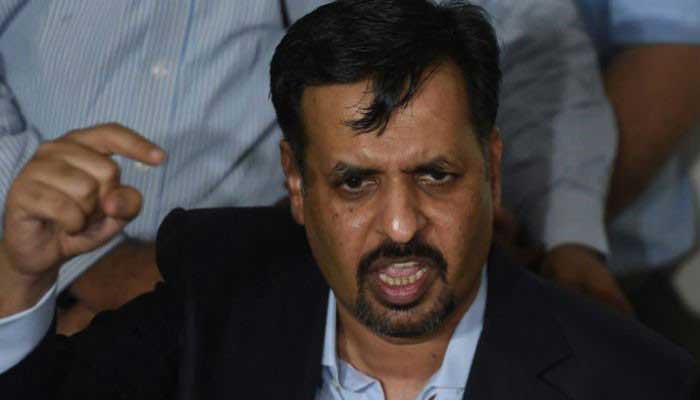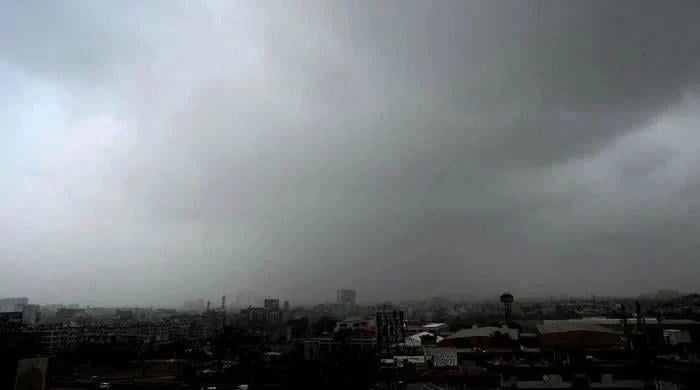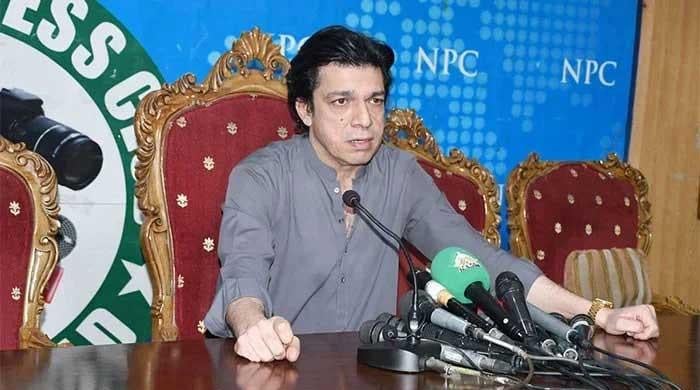Keamari district: Mustafa Kamal slams Sindh govt for 'robbing' local govts of their powers
Sindh govt divested the city of its powers after the Eighteenth Amendment by centralising those powers with itself, says PSP chief
August 22, 2020

Pak Sarzameen Party Chairman Mustafa Kamal lashed out at the Sindh government for what he called 'robbing' the district governments of their powers by dividing the mega city of Karachi into seven parts. He also dressed down the federal government for creating a committee to oversee Karachi's issues, which he termed ‘a tactic to buy time’.
The Sindh cabinet, earlier this week, had given a go-ahead to establishing a seventh district in Karachi after bifurcating the existing district West - a decision that didn’t go down well with other political parties, including the PSP.
“The Sindh government divested the city of its powers after the Eighteenth Amendment by centralising those powers with itself. And, on the other hand, it has robbed the district governments of their powers by slicing the city into seven parts,” said Kamal, speaking on Geo News current affairs programme ‘Aaj Shahzeb Khanzada Kay Saath’ on Friday.
“Karachi is a mega city. It used to be 18 decentralised towns.”
The PSP chairman argued that provinces were not empowered as a result of the 18th Amendment and instead it made the chief minister powerful to the extent that you may call him a ‘dictator’.
Disputing the usefulness of the 18th Amendment at the district level, he said the CM has concentrated the powers in his office without letting them trickle down to the grassroots levels.
He pointed out that provincial autonomy means that cities, districts, union councils, villages and citizens of that province get more powers, but it is not the case.
He also highlighted that money that a chief minister receives from the National Finance Commission award exclusively remains at the disposal of the CM, which he may or may not dole out to the districts.
A Provincial Finance Commission award is the need of the hour, he suggested.
Kamal had another suggestion for the provincial government, which was to reverse the bifurcation of the city to ‘one district plus 18 towns’, as this will help resolve the city’s civic issues, including solid waste management and other maintenance irritants.
But unfortunately, he added, today’s leadership is busy with corruption without fulfilling its responsibilities.
Replying to a question asking what he will do if put in place to play a role for Karachi, Kamal said, “I wouldn’t get involved in corruption. I will utilize the city government’s funds and employees, who draw millions of rupees in salaries, to their fullest.”
With all the resources and powers currently available, the city can be well managed, he added.
The PSP also distrusted the committee formed by the federal government, saying, “I am unsure that the committee will be helpful in resolving Karachi’s problems. It’s because committees traditionally have not been as worthwhile as for this one to be credible.”
He was of the view that the committee was created as the Karachi issue is currently hot and on the table, which has put pressure on the political parties. He claimed the committee was set up only to release the pressure.
Saying there is no need for any committee, Kamal said all the issues of Karachi would stand resolved if everyone does what they are supposed to.
“The world is headed to the moon and we are forming a committee to clean the city,” he added, terming the formation of the committee a mere tactic to ‘buy more time’.
He also slammed the Pakistan Tehreek-e-Insaf (PTI) MPAs and MNAs from the province who failed to ‘penetrate to grassroots levels.'
"That’s why no one knows that the PTI has 14 MNAs and 25 MPAs here – it’s definitely led to a vacuum," he said.
Kamal also flayed the MQM, saying the party managed the city’s affairs for the last 32 years but they failed in playing their due role for the city's betterment. “If the money and resources available with the mayor had been appropriately consumed without any corruption, the city would have been different now,” he argued.
In 2013, he added, when the districts were being demarcated, and MQM were a part of the government, they, including the governor, should have quit their positions in protest, he said.
“Had they refused to agree [to formation of the new districts of Karachi], the city wouldn’t have been so devastated,” he added.









